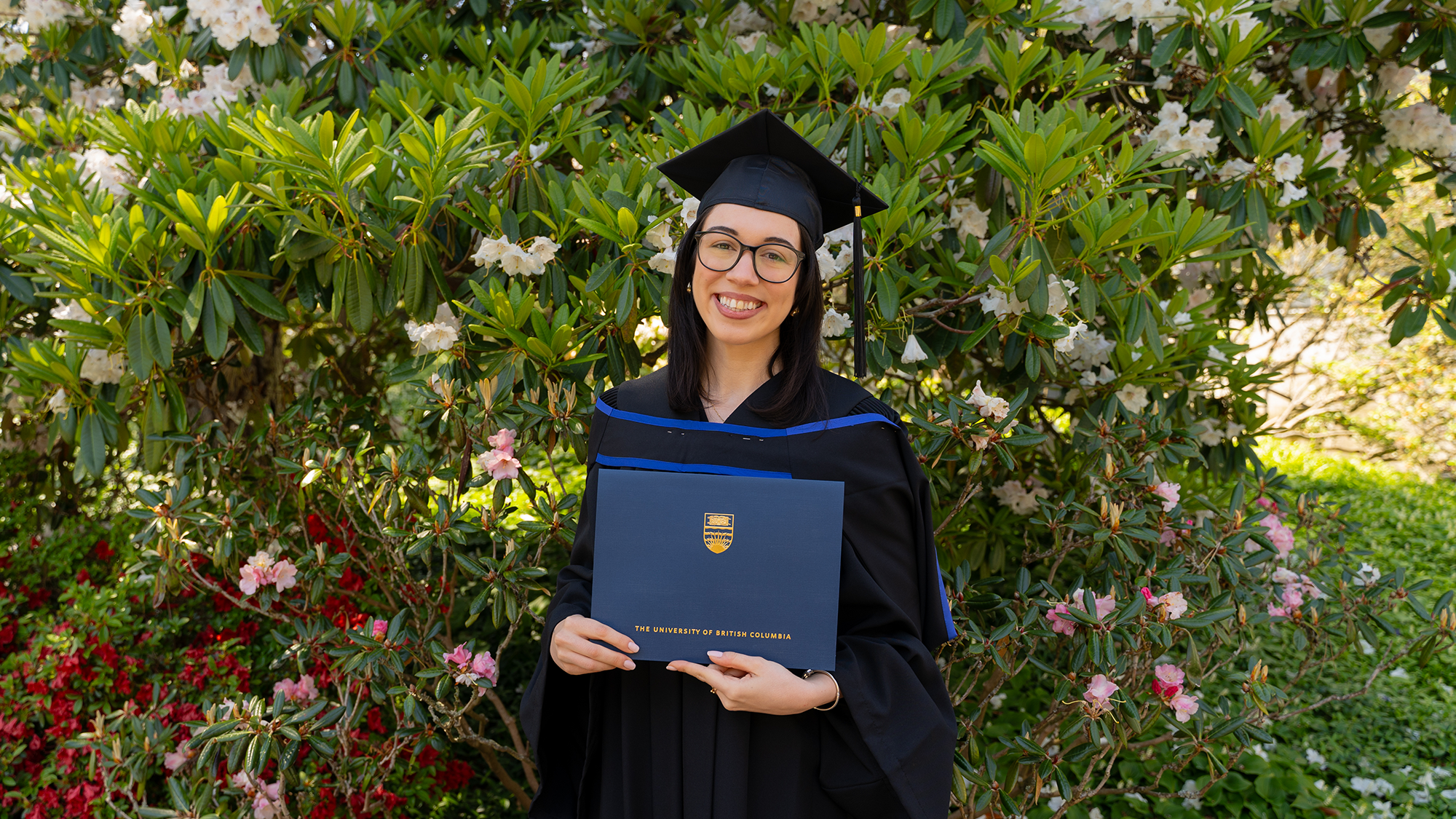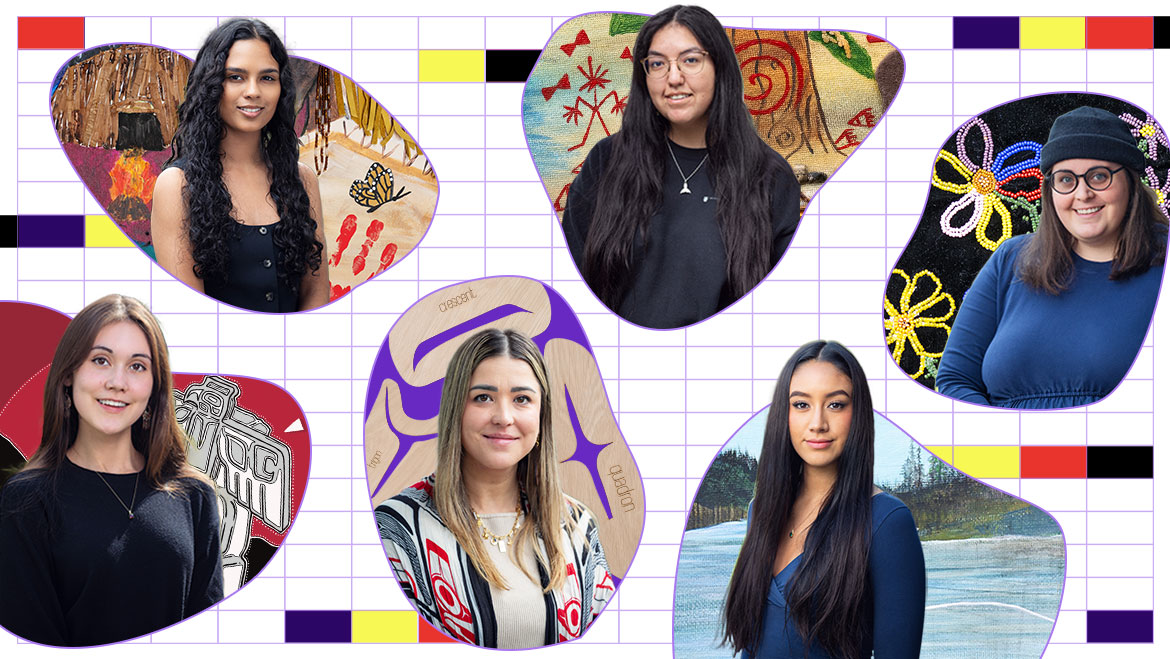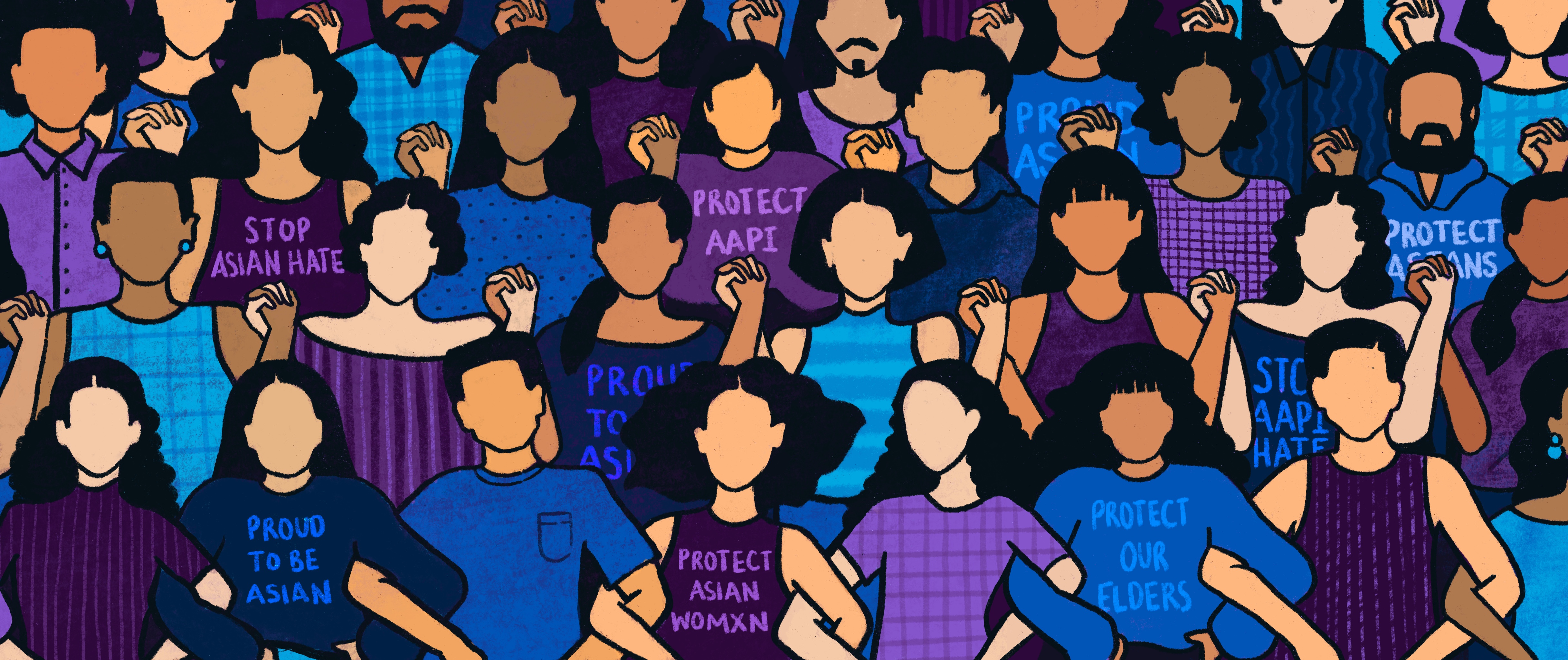

By Aydin Quach (he/him/his), Master of Arts in History. Aydin is of Chinese-Vietnamese heritage.
The past year has been full of transformation and activism for IBPOC folks. Since the last installment of this series, so many IBPOC classmates and friends of mine have asked about how they can continue to make space and change within their community and workplaces. The question of how to assert oneself in the workplace has certainly popped up in my mind a few times too! Over the month of May, which just so happened to be Asian Heritage Month, I went and asked some of the fantastic staff that help make UBC Arts run on a day-to-day basis and bring change into everything that they do.
This is part three in a four-part series, featuring student, faculty, and staff voices from the UBC community.
- How Arts students are creating space to heal and be proud of their Asian identities (Part I)
- How Arts faculty are creating space to heal and be proud of their Asian identities (Part II)
- Making Space for Joy (Part IV)
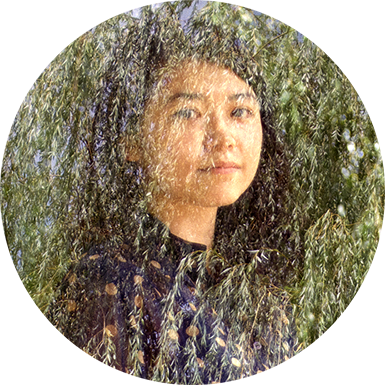

Szu Shen (she/her/hers)
Szu is the Program Manager of the Asian Canadian and Asian Migration Studies (ACAM) Program at UBC.
What does being Asian Canadian mean to you? How does your positionality come into play in the workplace?
To be honest, I’m still figuring out how I relate to “Asian Canadian” as a relatively recent settler immigrant and an uninvited guest on these unceded Indigenous lands. Born and raised in Taiwan, I moved to Vancouver for graduate school in my mid-twenties. Before I came here, I never thought of myself as “Asian” and my knowledge of Canada was very much limited to the “white politeness” portrayed in mainstream media.
During my graduate studies, I was very fortunate to meet several teachers, mentors, and friends who challenged and revolutionized my understanding of this place that I now call home. The colonial histories that I learned here also helped transform how I think about the histories of my home country, and I see a lot of parallels in the national formation of both Canada and Taiwan as settler-colonial states.
These realizations and learnings have informed and shaped how I currently approach being “Asian Canadian.” For me, being Asian Canadian means learning to appreciate the complexities and contradictions involved in the term “Asian” as an identitarian category, to understand and examine the colonial histories and settler-colonial presents of this place called “Canada,” and to actively embed these learnings in how I work and live.
What is one thing we can all do, as a UBC community, to be anti-racist?
It is so hard to reduce anti-racist work into one single thing, as I think being anti-racist has to be an ongoing process of trial and error, learning and unlearning. If I had to pick one, I would probably say “stay curious.”
What I mean by this is to keep an open mind to different ways of thinking, to not expect or demand a definite answer to difficult questions surrounding anti-racism, and to be patient when faced with resistance – from either myself or others – in the learning and unlearning process. It also means to be curious about stories, histories, and lived experiences that are unfamiliar or dissimilar to what I know or have heard, and be curious about my own discomfort and ignorance by asking “Why did I not know about this? Why do I feel uneasy with certain situations? How can I grow from this?” Stay curious with the understanding that there’s always something I don’t know or don’t fully know.
“...keep an open mind to different ways of thinking, to not expect or demand a definite answer to difficult questions surrounding anti-racism, and to be patient when faced with resistance – from either myself or others – in the learning and unlearning process.”
Are there anti-racist resources, programs, or groups, you would recommend for allies?
Over the past two years, ACAM has been collaborating with the hua foundation to develop a low-barrier resource collection that would facilitate wider engagement with anti-racist work. The collection was first created in 2020 by ACAM alumna Jackie Sarvini with the support of the collection’s project manager (and also ACAM alumna) Kimberley Wong. The first iteration of the collection covers topics including anti-Indigenous racism, anti-Black racism, model minority myth, performative activism, and solidarity building. Last year, Kimberley and I worked with three student researchers from our program – Olivia Lim, Mandy Huynh, and Guneet Pooni – to further expand the sections on model minority myth and anti-Indigenous racism.
Knowing that these topics are not the most easy to digest and that people learn in different ways, the team made a point to include resources in a variety of forms – from scholarly publications to creative writing, from editorials to Instagram posts, from YouTube videos to podcasts and songs. I have shared the resource collection with many colleagues and students, and people usually remark on how accessible and inviting the resources are. And that is what I think makes the collection unique – it’s not another long list of resources but an active attempt to showcase and invite people to engage with these important learnings and reflections.
What would a better future for Asian Canadians look like for you?
A future where it would be obsolete to talk about these questions. A future where we don’t need Asian Heritage Month, Black History Month, Indigenous History Month, and other specially designated reminders in our calendar to recognize and celebrate different racialized communities and individuals for just 30 days out of a year.
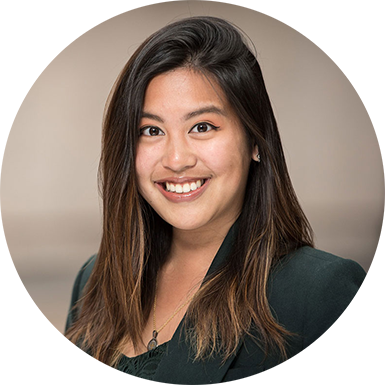

Katya Roxas (she/her/hers)
Katya is a Communications and Design Strategist for the Faculty of Arts.
What does being Asian Canadian mean to you? How does your positionality come into play in the workplace?
As an uninvited settler of Filipino heritage living on the ancestral, traditional and unceded territories of the Musqueam, Squamish and Tsleil-Waututh Nations, I’ve had to reassess everything I knew growing up and critically think about what needs to be challenged. To me, being Asian Canadian means understanding the multidimensionality of my own heritage while continuing to honour and recognize the diverse cultures and identities I co-exist with.
The primary goal for the design I created for the National Forum on Anti-Asian Racism was a call for action against the racism and discrimination that affects our neighbours, colleagues, and family members. While I was developing the design, it was important for me to check the privilege I was given and ensure that the visuals mirror the reality that all Asian Canadians have their own unique lived experience. There are a multitude of intersectionalities – whether it’s gender, age, neurodiversity, religion, status, or education background – within the term Asian Canadian that should be recognized and celebrated.
Before starting any project, I think about whose voices need to lead the conversation, and when I need to take a step back and give them the platform. Being raised in a predominantly Catholic and monoethnic country, I proactively seek out stories and histories different from mine. Whether it’s illustrating for an op-ed about white supremacy, working on materials for the Centre of Asian Canadian Research and Engagement, or an editorial about anti-Muslim hate, it’s crucial to identify the true subject experts, identify the purpose behind their objectives, and support them with their key messages. It’s always an invaluable opportunity to practice humility, dive into a conversation, and listen.
There have also been instances when I’ve had to speak up about misrepresentation and unconscious biases. Working in communications as a racialized woman of colour, I find myself pushing against editorials or projects with Eurocentric or homogenous point of views, and instead, try to have different perspectives and representation across the body of work. It has ultimately been a balance of finding my voice but using it and standing firm when necessary, and sharing my vulnerabilities to empower others.
What is one thing we can all do, as a UBC community, to be anti-racist?
Embrace the beauty of diversity by learning and respecting each other’s cultures and identities. Anti-racist work starts with seeking out the stories of others and being authentically receptive towards what they have to say. With that said, the responsibility of change cannot solely rest on the shoulders of Indigenous, Black, or People of Colour.
For allies, do the internal work and make an effort to question the history you were taught, decolonize the structure or system within your area in small but mighty ways, and commit to protecting those who are marginalized. Rather than only seeing racism and discrimination as a data point or headline, you need to keep in mind that it’s a human experience lived by your own peers. Check in on them and genuinely support them.
For those who identify as Indigenous, Black, or a Person of Colour, continue to stand in your power and let your truth be known unapologetically. There are many ways we can contribute to a more anti-racist environment, but we must protect our boundaries to keep the movement sustainable for the long run.
“For those who identify as Indigenous, Black, or a Person of Colour, continue to stand in your power and let your truth be known unapologetically. There are many ways we can contribute to a more anti-racist environment, but we must protect our boundaries to keep the movement sustainable for the long run.”
What would a better future for Asian Canadians look like for you?
I think that for many Asian countries, our history and the impact of colonization hasn’t been highlighted enough in Western education. With the current political climate in the Philippines, I believe that a better future would mean magnifying the truth of our histories and heritage through ethical research. A better future would be filled with accessible documentation to hold us accountable for our past so that we can have a safe space to be a more inclusive environment and continually improve for upcoming generations. A better future would mean knowing our parents can safely go for a neighbourhood stroll, and our younger siblings can proudly share their sinigang and sinangag baon with their classmates at school. It would be a future where Asian Canadian communities are celebrated for their rich and diverse cultures, longstanding traditions, familial systems, and unique complexities.
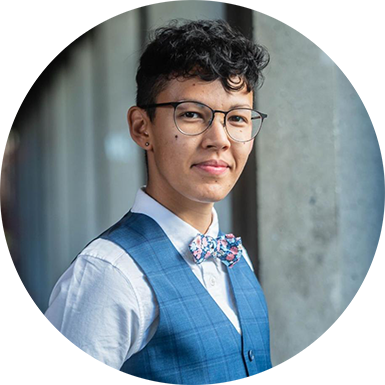

Emi Sasagawa (she/her/hers)
Emi is the Director of Communications for the Faculty of Arts, and a 2021 recipient of the President’s Staff Award for Advancing Anti-Racism and Inclusive Excellence.
What does being Asian Canadian mean to you? How does your positionality come into play in the workplace?
Asian Canadian is not so much who I am but how I’m seen. As an immigrant of mixed ancestry, the term doesn’t capture my experience. Legally, I am not a Canadian citizen, though I’ve lived on the ancestral, traditional and unceded territories of the Musqueam, Squamish and Tsleil-Waututh Nations for almost 10 years. My father was born in Japan, and my mother was born in Brazil. My identity has often felt somewhat relative to my environment and the people in it.
For me, the term Asian Canadian is equal parts imaginary and possibility. It’s the things that bring us together, the ways in which we are similar, our collective values, wants and needs. But it’s also the possibilities that lie in apparent dissonance – the ways we differ, how our experiences are able to match, then transcend one another. It’s the limitless power we each hold as authors, narrators and characters in our stories. It is our ability to fit the bill exactly but also to become so much more.
“For me, the term Asian Canadian is equal parts imaginary and possibility. It’s the things that bring us together, the ways in which we are similar, our collective values, wants and needs. But it’s also the possibilities that lie in apparent dissonance – the ways we differ, how our experiences are able to match, then transcend one another.”
I see positionality as the characteristics and attributes that shape how we perceive the world and how the world perceives us. It’s a collection of our visible and invisible identities – for example, being a settler, immigrant and queer woman of colour. Privilege is the advantages and benefits that we enjoy for belonging to certain identity groups. In my case, I am upper middle class, educated and a homeowner.
For me, positionality in the workplace is about learning when to use our privilege to listen to, speak up, make space for, advance the needs of or act as a buffer for others in positions of less power. It’s about doing what we can to address power imbalances, with an understanding that there are a multitude of ways we can be of service, and the less we make it about us specifically the better.
Are there anti-racist resources, programs, or groups, you would recommend for allies?
General advice that I’ve picked up from conversations with other IBPOC folx would include: Do your research. Read widely. And perhaps more importantly, give more than you take.
Books:
- Sister Outsider by Audre Lorde
- Shame on Me by Tessa McWatt
- Minor Feelings by Cathy Hong Park
- How to Be an Antiracist by Ibram X. Kendi
- The Skin We’re In by Desmond Cole
- We Have Always Been Here by Samra Habib
- The Inconvenient Indian by Thomas King
- Brown by Kamal Al Solaylee
- 21 Things You May Not Know About the Indian Act by Bob Joseph
Podcasts:
- Asian Enough by Jen Yamato, Johana Bhuiyan, Tracy Brown and Suhauna Hussain
- Mixed Up by Emma Slade Edmondson and Nicole Ocran
- Be Anti-Racist by Ibram X. Kendi
What would a better future for Asian Canadians look like for you?
Asian Canadian as a monolith is a myth that only serves to minimize our experiences into digestible bite-sized pieces for those who already see us as “the other”.
We must consider what equitable representation looks like for Asian Canadians. What are the dominant narratives and who controls them? What are the stories we tell ourselves and others about what it means to be Asian/Asian Canadian? What are the perspectives we have been ignoring as outside of the Asian Canadian experience?
We are East Asians, South Asians, Southeast Asians and everything in between. How can we honour our differences and transform them into strengths? How can we take categories that can isolate us and transform them into points of connection? If we each searched for and made space for voices that transcended our own thoughts, feelings, and perspectives, we’d expand what it means to be Asian. We’d become bigger, stronger, more powerful.
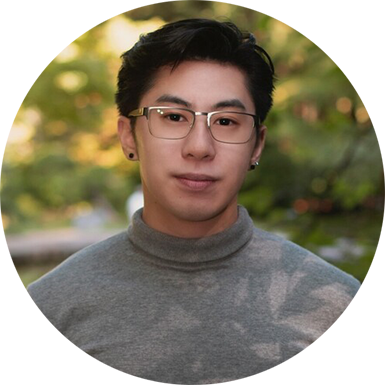

Aydin Quach (he/him/his) holds a Masters of Arts in History, specializing in Gender, Sexuality, and Cultural History. He is of Chinese-Vietnamese heritage. His research centres around gender performativity, masculinity, sex work, and nationalism in Southeast Asia.
Aydin’s place of work is situated within the traditional, ancestral, unceded territories of the Musqueam, Squamish and Tsleil-Waututh peoples.
